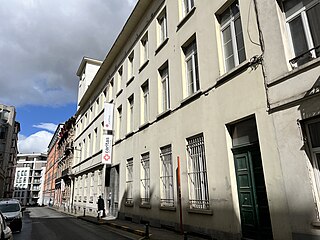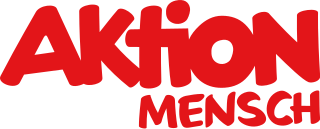Related Research Articles
Self-employment is the state of working for oneself rather than an employer. Tax authorities will generally view a person as self-employed if the person chooses to be recognised as such or if the person is generating income for which a tax return needs to be filed. In the real world, the critical issue for tax authorities is not whether a person is engaged in business activity but whether the activity is profitable and therefore potentially taxable. In other words, the trading is likely to be ignored if there is no profit, so occasional and hobby- or enthusiast-based economic activity is generally ignored by tax authorities. Self-employed people are usually classified as a sole proprietor, independent contractor, or as a member of a partnership.

The economy of the European Union is the joint economy of the member states of the European Union (EU). It is the second largest economy in the world in nominal terms, after the United States, and the third largest at purchasing power parity (PPP), after China and the US. The European Union's GDP is estimated to be $19.35 trillion (nominal) in 2024 or $26.64 trillion (PPP), representing around one-sixth of the global economy. Germany has the biggest national GDP of all EU countries, followed by France and Italy. In 2022, the social welfare expenditure of the European Union (EU) as a whole was 19.5% of its GDP.

The European single market, also known as the European internal market or the European common market, is the single market comprising mainly the 27 member states of the European Union (EU). With certain exceptions, it also comprises Iceland, Liechtenstein, Norway, and Switzerland. The single market seeks to guarantee the free movement of goods, capital, services, and people, known collectively as the "four freedoms". This is achieved through common rules and standards that all participating states are legally committed to follow.
The term sheltered workshop refers to an organization or environment that employs people with disabilities separately from others, usually with exemptions from labor standards, including but not limited to the absence of minimum wage requirements.

The Quaker Council for European Affairs (QCEA) is an international not-for-profit organisation which seeks to promote the values and political concerns of the Religious Society of Friends (Quakers) at the European level. It undertakes research and advocacy in the fields of peacebuilding and human rights policy, notably in relation to the European Union and the Council of Europe. Founded in 1979 by Quakers who worked in the European institutions, it is based in Brussels, Belgium and is registered under Belgian law.
Internet in Belgium has a high level of adoption and engagement, with a 93% uptake rate among individuals as of 2022, higher than the EU average of 89%. The country is on par with the EU average regarding digital skills, with 54% of its population having at least basic digital competencies. Illustrated through initiatives like the BeCentral digital campus, Belgium has created programs to boost digital literacy, which has trained over 425,000 students since 2017 to narrow the digital skills gap.

The Federal Public Service Foreign Affairs, Foreign Trade and Development Cooperation is the foreign affairs ministry of Belgium and is responsible for Belgian foreign policy, relations with the European Union, development cooperation policy and certain aspects of foreign trade policy. The central government in Brussels directs the network of diplomatic and consular representations abroad.

Caritas Europa is a European confederation of Catholic social service providers and international development and humanitarian relief organisations operating in Europe. It is one of the seven regions of Caritas Internationalis.

Self Help Africa is an international charity that promotes and implements long-term rural development projects in Africa. Self Help Africa merged with Gorta in July 2014, and in 2021 merged with UK-based INGO, United Purpose. The organisation also owns a number of social enterprise subsidiaries - Cumo Microfinance, TruTrade and Partner Africa.
There are several social issues in Armenia including poverty, high unemployment rates, corruption, and inadequate public services.
Missing Children Europe is an organisation which aims to ensure that every EU member state has the necessary procedures and regulations in place to deal with cases of missing and/or sexually exploited children, and are able to both provide support for the victims, and take steps to prevent future disappearances. It is an umbrella organization for 32 NGOs throughout Europe, 23 of which run a 116000 hotline for missing children.

The Comprehensive Economic and Trade Agreement (CETA) is a free-trade agreement between Canada and the European Union and its member states. It has been provisionally applied, thus removing 98% of the preexisting tariffs between the two parts.
The European Platform for Rehabilitation (EPR) is a network of European providers of rehabilitation services to people with disabilities and other disadvantaged groups. EPR members deliver services in the fields of vocational training and education, reintegration of service users into the open labour market and improvement of their employability, physical rehabilitation and social care.
RREUSE is an international nonprofit network that links social enterprises active in the environmental field of re-use, repair and recycling. Its main areas of focus are environmental protection, social equity, and economic viability.
The European Quality in Social Services (EQUASS) is an integrated sector-specific quality certification system that certifies compliance of social services with European quality principles and criteria. EQUASS aims to enhance the social sector by engaging service providers in quality and continuous improvement and by guaranteeing service users quality of services throughout Europe.
The Zero Project is a non-profit based in Vienna, Austria, which focuses on researching and sharing innovative solutions that support the rights of people with disabilities globally. Zero Project publishes an annual report of innovative solutions for persons with disabilities, holds an accessible conference annually to share these solutions, and partners with other organizations to support innovators in scaling up their solutions globally.

Autism-Europe is an international non-profit association located in Brussels, Belgium. The organisation is co-funded by the European Union.

The Aktion Mensch registered association is a German social organisation which was formed on the initiative of the ZDF, a German television channel, in 1964 and is financed from the Lottery. The organisation supports inclusion, which may be defined as equality for all in the community.
Hft, formerly known as the Home Farm Trust, is a British learning disability charity based in Bristol. It was established in 1962. The parents who established the charity bought Frocester Manor in Gloucestershire as a residential home for their children. The organisation runs small, person-centred residential care homes and supported living services.

Next Generation EU (NGEU) is a European Commission economic recovery package to support the EU member states to recover from the COVID-19 pandemic, in particular those that have been particularly hard hit. It is sometimes styled NextGenerationEU and Next Gen EU, and also called the European Union Recovery Instrument. Agreed in principle by the European Council on 21 July 2020 and adopted on 14 December 2020, the instrument is worth €750 billion. NGEU will operate from 2021 to 2026, and will be tied to the regular 2021–2027 budget of the EU's Multiannual Financial Framework (MFF). The comprehensive NGEU and MFF packages are projected to reach €1824.3 billion.
References
- 1 2 3 4 "EASPD Timeline" (PDF). EASPD. 2018-08-21. Archived from the original (PDF) on 2018-11-26. Retrieved 2018-08-23.
- ↑ "Social Services Europe | SSE | Brussels | WHAT WE DO". Social Services Europe | SSE | Brussels. Archived from the original on 2023-02-07. Retrieved 2018-08-23.
- ↑ "EASPD new office | EASPD". www.easpd.eu. Archived from the original on 2018-08-23. Retrieved 2018-08-23.
- ↑ "EASPD launches new website". 2017. Archived from the original on 2018-08-23.